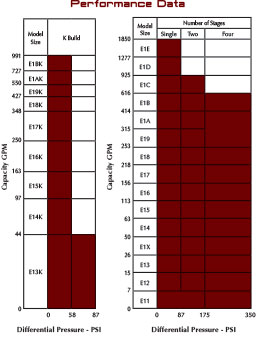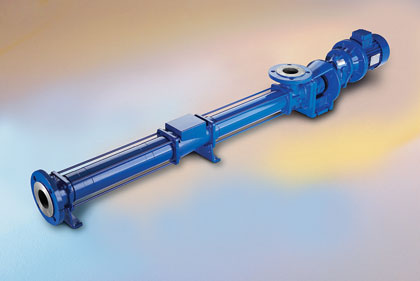In 1545, off the south coast of England, an invading fleet of French vessels entered the Solent Channel, approaching the awaiting forces of King Henry VIII and his flagship, the Mary Rose. The Battle of Solent was underway soon thereafter, a short and indecisive footnote in military history that nonetheless claimed a famous casualty. After she unloaded one side of cannons on the French armada, the Mary Rose turned around and was caught in an upending gust of wind. Reports at the time claimed that, in the chaos and fury of the firefight, the lower gunports were left open, allowing water to rush into the hull and drag the Mary Rose and roughly 400 of her crew to the bottom of the Solent, where she lay until discovered by British journalist and amateur diver Alexander McKee in the 1960s. However, the process of reclaiming and preserving this piece of history would take many more decades still, and only recently has one chapter come to a close.

PLAYING A CRUCIAL ROLE
When a number of Moyno™ pumps were switched off recently, it marked the end of a twenty-year operation to preserve the remains of an historic Tudor warship, the Mary Rose. The progressing cavity pumps from Moyno™ have been used to help spray the fragile timbers of the Mary Rose with a mixture of water and wax—a crucial stage in the preservation process that has now come to an end.
The race to preserve the remains of Henry VIII’s flagship began after she was recovered from the bottom of the Solent, where she had lain since sinking some 430 years earlier. Moyno’s association with the ship began in 1994, when pair of industrial progressing cavity pumps were chosen for duty/standby roles to help spray the hull continuously with a solution of Polyethylene Glycol (PEG) to stabilize its waterlogged timbers. The pumps provided a continuous stream of PEG to 360 spray nozzles located around the ship, and were supported by four smaller Moyno pumps, which operated the heating and cooling circuits that maintained the PEG at an optimum spray temperature.
EPSILON PROGRESSING CAVITY PUMPS
The Epsilon range of industrial progressing cavity pumps combines proven pump technology with a number of innovative features designed to benefit the end user. Moyno’s experience, combined with an effective program of customer feedback, has resulted in a range that has characteristics of reliability, efficiency, and low operating costs.
Available in a choice of cast iron or stainless steel materials, the Epsilon range possesses a bloc construction that has reduced overall dimensions and can offer benefits when space restrictions apply. Other significant features of the range are the incorporation of Moyno’s PowerDriveTM transmission. The PowerDrive has proved its worth in many Moyno applications where it reduces cost by eliminating the need for a double universal joint. With no wearing parts, the PowerDrive offers greater lifetime cost savings over conventional drive train designs and extends intervals between routine maintenance. This high pressure pump is reliable and efficient when handling abrasive materials, high viscosity fluids, and high head applications.
Epsilon has been developed thanks to a combination of careful research and many years of experience of Moyno pumps operating in various industries. Reliability, efficiency, and value for money are critical to our customers, but so is simplicity. When the opportunity to re-design a popular E-series pump range presented itself, NOV Mono was determined to make the Epsilon even easier to install and maintain.

RELIABLE PERFORMANCE UNTIL THE JOB IS DONE
After ten years of operation when maintenance was required on a gearbox, the Moyno pumps were also inspected and found only to need one stator component replacing. The pumps then returned to operating at speeds of 279 revolutions per minute, circulating 528 gallons (2000 liters) per minute of PEG solution around the spray system. Six additional Moyno Industrial E range pumps were later added to increase the capacity of the heating and cooling circuits.
“The ship’s timbers had to be kept fully moistened at all times, so the pumps used had to be totally reliable if the timbers were to be properly preserved,” comments senior sales engineer Mike Burton. “This project really has shown how Moyno pumps can provide consistently high levels of performance year after year and simply go on giving excellent service.”
Until she sank in 1545, the Mary Rose was one of the largest ships in the English Tudor fleet. She is now the only sixteenth century warship on display anywhere in the world, and forms the centerpiece of a new £27million ($44 million US) museum that has been built at Portsmouth Historic Dockyard. The new museum also holds many thousands of the 19,000 Tudor artifacts that were recovered along with the vessel. ■
_________________________________________________________________________
ABOUT THE AUTHOR
Yvette Jacobs is the global marketing manager for NOV Mono, a global leader in the design and development of the progressing cavity pump. Brands include Chemineer, Mono, Moyno, and Tarby. For more information, visit www.moyno.com.
_________________________________________________________________________
MODERN PUMPING TODAY, January 2014
Did you enjoy this article?
Subscribe to the FREE Digital Edition of Modern Pumping Today Magazine!
![]()


